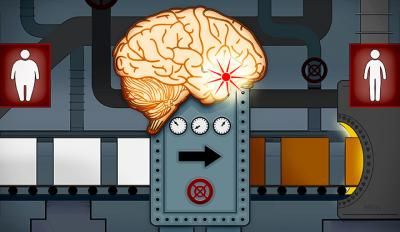Hypertension, a widespread disease - less salt helps
The BfR recommends a reduction in the salt content of processed foods as an action against hypertension
Advertisement
What would the soup be like without salt? The addition of salt in the processing of food has multiple benefits: salt can extend the shelf life of foods and improve their taste, and it is involved in numerous basic metabolic processes in our body. But too much of a good thing can have detrimental health effects. High salt consumption can drive up blood pressure and supports the development of cardiovascular diseases. In many people, reducing salt intake can lower blood pressure. According to the joint assessment of the Federal Institute for Risk Assessment, the Max Rubner Institute (MRI) and the Robert Koch Institute (RKI), the majority of the German population consume too much salt. However, what is important is not so much how often we use the salt shaker, but rather the consumption of bread, dairy products (e.g. cheese), meat products and sausages. Salt is not only added to these foods when they are processed, but they are eaten in large quantities. Against the background that almost half of German adults (44 % of women and 51 % of men) have elevated blood pressure, the BfR recommends that the salt content in processed foods be reduced.
The average salt intake of the German population is too high. Especially young men, children and adolescents consume too much salt. Since there is a connection between high salt intake and hypertension, the MRI, RKI and BfR recommend reducing the salt intake of the population. However, a diet low in salt is not easy to implement, because almost all processed foods contain salt.
Among the foods which are principally responsible for the high salt intake are bread, dairy products (e.g. cheese) as well as meat products and sausages. However, there are differences within these types of foods. Products for which salt is used as a preservative such as salami have especially high salt contents. Hard cheese contains more salt than cream cheese. Even nibbles and sauces often contain large quantities of salt. Since these foods are much rarer and / or consumed in lower quantities than the above-mentioned foods, they only account for a small part of the overall salt intake.
A recommendation to consumers to eat less processed foods is hardly realisable, since they constitute an inherent part of the diet in Germany. For this reason, the BfR recommends that the salt content in processed foods is reduced. Moreover, consumers should use salt sparingly in the household in order to avoid additional salt intake. An adjustment to the less salty taste can be made through a gradual reduction. That way, the palate and the tongue get used to the milder taste.
The antihypertensive effect of a diet low in salt can be supported by physical exercise, weight loss, a diet rich in fruit and vegetables and by avoiding alcohol.

















































